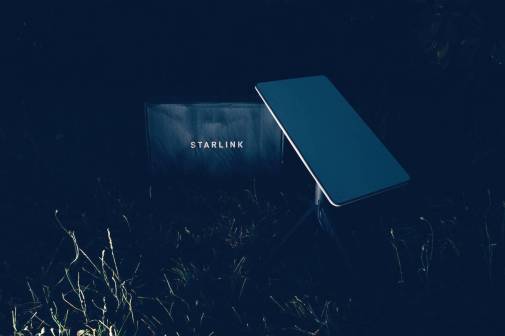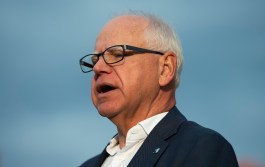Minnesota $35M broadband grant program bill heads to governor

Despite a chaotic end to Minnesota’s legislative session, lawmakers were still able to approve tens of millions of dollars to fund the state’s broadband expansion grant program and broaden the criteria for grant applicants.
When the dust settled in the wee hours of Monday morning, legislators emerged with a biennial budget bill that included $35 million for the 2017 fiscal year for the “Border-to-Border Broadband Development Program,” which awards matching funds for communities, private providers and co-ops looking to build high-speed internet service.
That number falls far short of the $200 million that Gov. Mark Dayton’s broadband task force recommended for the fund, and fails to meet the $100 million standard that Dayton himself was advocating. Nevertheless, Margaret Anderson Kelliher — the chairwoman of the task force and president and CEO of the nonprofit Minnesota High Tech Association — told StateScoop that she was overwhelmingly encouraged by the investment.
“Our budget had a lot of demands on it, so getting $35 million in appropriations is really good, because that’s three and a half times the amount that we saw last year go into the program,” Kelliher said. “It’s more money than has gone into the program in the history of the program.”
Kelliher noted that she was also encouraged by the adjustments lawmakers made to the program’s criteria for applicants. State law directs the Office of Broadband Development to give special consideration to “underserved areas,” and the bill would adjust the definition of those regions from areas where people lack access to internet speeds of 25 megabits per second for downloads and 3 Mbps for uploads to those where people can’t access speeds of 100 Mbps for downloads and 20 Mbps for uploads.
She’s similarly pleased with the updates legislators included to the state’s internet speed goals. The bill aims for all Minnesotans to get connected to speeds of 25 Mbps for downloads and 3 Mbps for uploads by 2022. Lawmakers also added what Kelliher terms a “stretch goal” of getting every resident access to 100 Mbps for downloads and 20 Mbps for uploads by 2026.
But not everyone in the state is as pleased with the Legislature’s compromise. Dan Dorman, executive director of the Greater Minnesota Partnership, views the $35 million in funds as merely a “small, incremental” victory in the grand scheme of things.
“It still isn’t going to work very well for 85 percent of the people in greater Minnesota,” Dorman said.
[Read more: Minnesota Legislature battles over broadband grant funding, criteria]
Indeed, Dorman is principally concerned with building out faster internet service for communities that already have basic, yet inadequate access, since his nonprofit represents businesses and chambers of commerce around the state. Accordingly, he was hoping that lawmakers would hew closer to a Senate proposal that would have allocated $85 million to the program, since he felt that “would’ve included more people in the state.”
He finds some solace in one provision of the finalized bill, however — the legislation’s language allows the state’s broadband office to dedicate $5 million of the $35 million appropriation for projects in underserved areas. Combined with the new speed definition for those regions, Dorman envisions that helping communities get access to moderate speeds will substantially upgrade their capabilities.
But Dorman is deeply concerned about the bill’s provisions to let existing broadband providers challenge applications for expansion projects in areas they already serve. While the legislation no longer contains a previously proposed provision that would have let companies shut down any application for a project in their service area, Dorman worries the process could still “screw the whole program up.”
The legislation gives providers 30 days after the state posts grant applications online to file a challenge, and they’ll have to prove that they have a plan in place to build broadband infrastructure that can meet (or exceed) the state speed goals within the next 18 months.
“It looks like the work of CenturyLink and companies like them, since that’s who benefits most from this provision,” Dorman said. “How many times are you going to put together an application if it’s going to be booted out by a provider?”
Dorman also worries about the ambiguity of the language. After all, state statute now includes two speed goals — one for 2022 and one for 2026 — and the bill doesn’t specify which ones providers have to meet.
“We believe that it’s intentional ambiguity that will result in lawsuits, or it was a drafting error,” Dorman said.
Given the chaos on the floor ahead of the end of the session, where lawmakers were racing to pass the budget bill and major funding packages for transportation and public works projects, Dorman wouldn’t be surprised if the broadband language didn’t get the full attention it deserved in the end.
Kelliher expects the broadband office will be able to clarify some of that uncertainty should the bill become law, and while she disagrees with the need for the language, she also noted that the office has already operated a similar challenge process in the past without any overly negative results.
But as lawmakers wait on Dayton’s final decision on the budget bill — Kelliher expects he’ll sign it without any changes to the broadband section before the week is out — Dorman fears that the bill’s challenge process could make obtaining more funding for the program in the future especially difficult.
“If this language really restricts the applications, then the Legislature may come back and say, ‘See, we don’t need to put any money in it, there’s not any applications that came forward,’” Dorman said. “It could have a chilling impact.”
Contact the reporter at alex.koma@statescoop.com, and follow him on Twitter @AlexKomaSNG.






